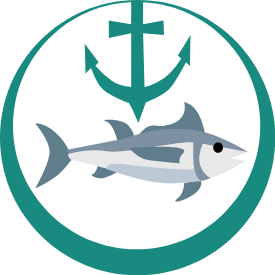
A tecnologia Blockchain está revolucionando vários setores, e a indústria pesqueira não é exceção. Com suas características únicas de transparência, segurança, e descentralização, Blockchain oferece soluções inovadoras que podem transformar a logística e a rastreabilidade na indústria pesqueira.
1. Rastreabilidade aprimorada
A rastreabilidade é um dos principais desafios da indústria pesqueira. Com blockchain, Cada etapa da cadeia de suprimentos pode ser registrada de forma imutável. Isso permite que consumidores e reguladores rastreiem a origem do peixe, Da captura ao ponto de venda, garantir que os produtos sejam sustentáveis e provenientes de práticas responsáveis.
2. Transparência da transação
O Blockchain fornece um registro transparente e acessível de todas as transações. Isso significa que todos os participantes da cadeia de suprimentos - pescadores, Distribuidores, e varejistas - podem acessar informações em tempo real. Essa transparência ajuda a criar confiança entre as partes interessadas e reduz práticas fraudulentas, como a pesca ilegal.
3. Eficiência Logística
A implementação do blockchain pode otimizar a logística no setor pesqueiro. Com dados em tempo real sobre a localização e condição do peixe, As empresas podem planejar melhor suas operações, reduzindo o desperdício e melhorando o gerenciamento de estoque. A automação de processos por meio de contratos inteligentes também pode acelerar as transações e reduzir os custos operacionais.
4. Gerenciamento de estoque aprimorado
A rastreabilidade e a transparência fornecidas pelo blockchain ajudam no gerenciamento de estoque. Informações precisas sobre a quantidade e a qualidade do pescado disponível permitem que as empresas ajustem suas estratégias de compra e venda, evitando excessos ou escassez de produtos.
5. Prova de Sustentabilidade
Com a crescente demanda por produtos sustentáveis, Blockchain pode servir como uma ferramenta para demonstrar práticas de pesca responsáveis. As informações registradas no blockchain podem fornecer provas verificáveis de que o peixe foi capturado de forma sustentável, ajudando a atrair consumidores ambientalmente conscientes.
6. Redução de intermediários
A utilização de blockchain pode minimizar a necessidade de intermediários na cadeia de suprimentos. Isso não apenas reduz os custos de transação, mas também acelera o processo de vendas, permitir que os pescadores recebam pagamentos mais rapidamente.
A adoção da tecnologia blockchain no setor pesqueiro oferece uma série de benefícios significativos, especialmente nas áreas de logística e rastreabilidade. Proporcionando maior transparência, eficiência, e sustentabilidade, Blockchain pode ajudar a transformar a indústria pesqueira, tornando-o mais responsável e adaptável às demandas do mercado contemporâneo. À medida que mais partes interessadas reconhecem essas vantagens, A implementação do blockchain torna-se uma questão de oportunidade e inovação para o futuro do setor.
